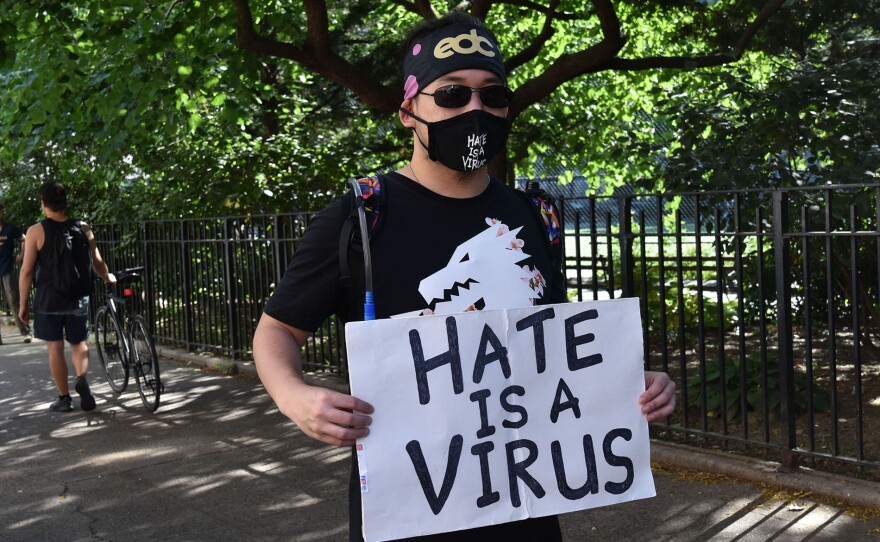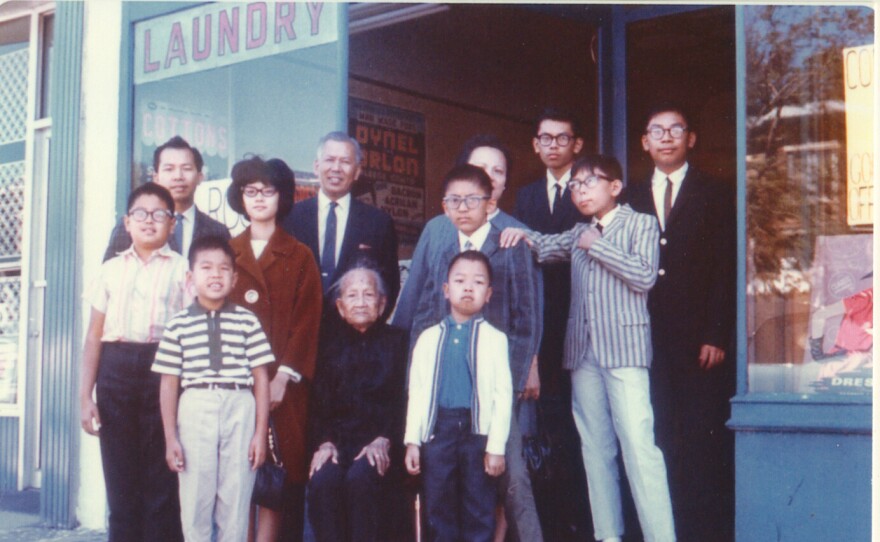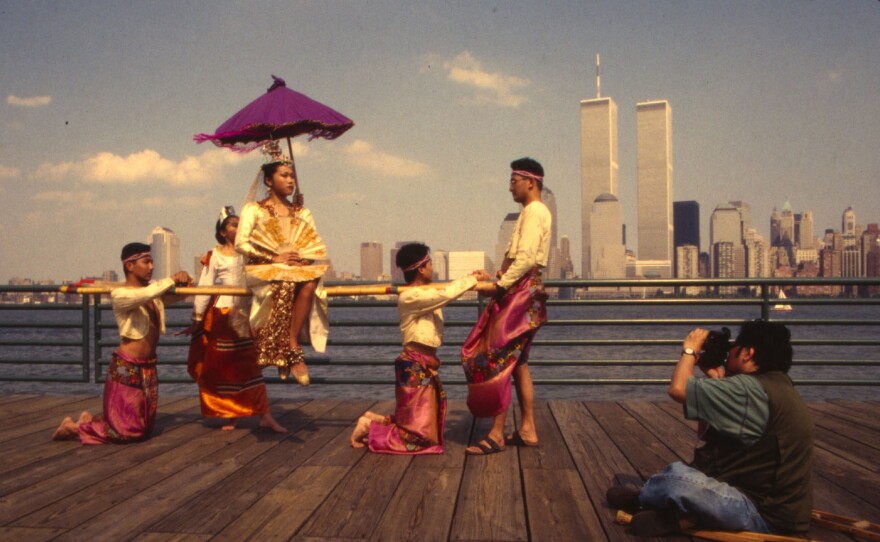Premieres Tuesday, May 28, 2024 at 9 p.m. on KPBS TV / Stream now with the PBS App
For 50 years, Chinese American photographer Corky Lee documented the celebrations, struggles, and daily lives of Asian American Pacific Islanders with epic focus. Determined to push mainstream media to include AAPI culture in the visual record of American history, Lee produced an astonishing archive of nearly a million compelling photographs.
His work takes on new urgency with the alarming rise in anti-Asian attacks during the Covid pandemic. Filmmaker Jennifer Takaki’s intimate portrait reveals the triumphs and tragedies of the man behind the lens.

Corky Lee was born in 1947 in New York to Chinese immigrants who owned several laundry mats in Queens. He majored in history at Queens College and became a community organizer in Manhattan’s Chinatown in the 1970s.
Over the next five decades he photographed countless protests and cultural events in the Asian American Pacific Islander community. Lee’s photographs documented the birth and growth of the Asian American movement for social justice, and he became known as “The Undisputed, Unofficial, Asian American Photographer Laureate.” His death in 2021 at the age of 73 due to COVID-19 was mourned in the press worldwide.
Filmmaker Quote:
“When my path unexpectedly crossed with photographer Corky Lee, I was immediately hooked. His vast knowledge of American history, mixed with his dedication to documenting the diversity of his beloved Asian American Pacific Islander (AAPI) community, and his unwavering commitment to push his images out to mainstream media made Corky one of the most interesting people I have ever met,” said filmmaker Jennifer Takaki. “Corky widened the lens in which I view the world and for that, I am forever appreciative. My hope for the film is for viewers to learn about the importance of AAPI history through Corky Lee’s photography and ultimately instil confidence, pride, and a sense of belonging to all.”

“Photographic Justice: The Corky Lee Story” is presented by the Center for Asian American Media (CAAM) and produced by All is Well Pictures in association with Ford Foundation and Scandobean Productions. Lily M. Fan, George Hirose, and Hillary Hirose serve as executive producers. Jennifer Takaki is producer and director. Linda Lew Woo, David Koh, and Nicole Dimiceli are producers. Linda Hattendorf is editor and Wendy Llinas is executive in charge for PBS.






